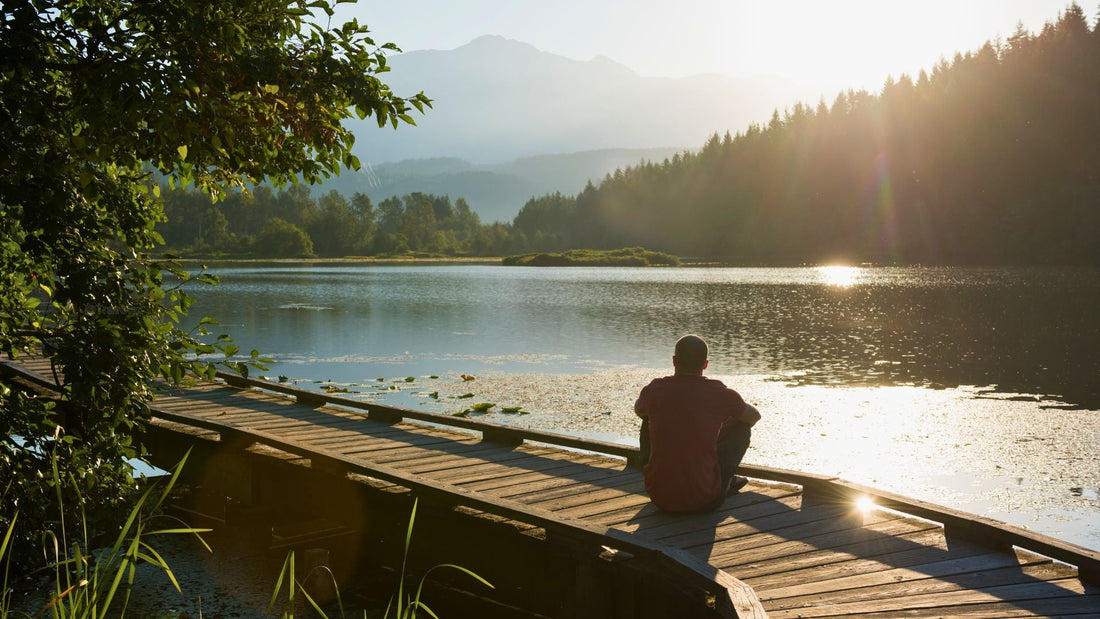
6 Travel Lifestyle Trends That Will Save You Money in 2025
Share
Lifestyle travel is no longer just about where you go—it's about how you travel, what experiences you prioritize, and how intentionally you design your journey. The smartest travelers in 2025 are embracing new travel philosophies that deliver richer experiences while keeping budgets in check. These emerging lifestyle trends prove that meaningful travel doesn't require a luxury price tag; it simply requires a shift in perspective.
Forest Bathing: Nature Therapy Without the Price Tag
Shinrin-yoku, or forest bathing, has emerged as one of the most accessible wellness travel trends of 2025. This Japanese practice involves mindfully immersing yourself in forest environments—no hiking gear, expensive tours, or exotic destinations required. While guided forest bathing experiences in Japan can cost around $300 per day, the beauty of this trend lies in its adaptability.
Money-Saving Strategy: Skip the international flight and discover local forests, state parks, or nature preserves within driving distance. The therapeutic benefits—improved mood, better sleep quality, reduced stress—remain identical whether you're in a Japanese cedar forest or your regional woodland. Pack a picnic, leave your devices behind, and spend 2-3 hours simply being present among the trees. Total cost: minimal gas money and perhaps a small park entrance fee.
Townsizing: Trading Tourist Traps for Authentic Savings
While crowds flock to Madrid, Shanghai, and Sydney, savvy travelers are embracing "townsizing"—deliberately choosing smaller towns over major cities. This lifestyle shift delivers dual benefits: authentic cultural immersion and significantly lower costs. Smaller locales offer genuine interactions with locals, traditional cuisine untouched by tourist markup, and accommodation rates that can be 40-60% lower than metropolitan areas.
Money-Saving Strategy: When planning your next European adventure, consider Bruges instead of Brussels, Porto instead of Lisbon, or Granada instead of Barcelona. Book locally-owned guesthouses through direct websites rather than major booking platforms to save on commission fees. Eat where locals eat—smaller towns pride themselves on authentic regional cuisine at neighborhood prices. This approach transforms your travel from surface-level sightseeing into meaningful cultural exchange, all while protecting your wallet.
City Breaks: The 48-Hour Micro-Experience Revolution
The city break lifestyle—short 2-4 night urban getaways—has evolved from quick escapes into curated micro-experiences. October 2025 travel data shows that modern travelers are prioritizing "pragmatic authenticity," seeking reliable local recommendations over generic tourist activities. The key to budget-friendly city breaks lies in strategic timing and event-based planning.
Money-Saving Strategy: Target shoulder season weekends without major events when hotel prices drop 30-50%. Book accommodations in neighborhoods 15-20 minutes from city centers via public transit—you'll save significantly while experiencing residential areas tourists rarely see. Create realistic walking itineraries to eliminate expensive hop-on-hop-off bus tours. When specific events like food festivals or film cycles attract you to a city, book 3-4 weeks ahead to secure lower rates, then build your entire trip around free or low-cost programming associated with that event.
Set-Jetting: Hollywood Dreams on a Budget
Set-jetting—visiting filming locations from favorite shows and movies—has exploded as a lifestyle travel category. While some set-jet to exotic locations like Thailand's Koh Samui from 'The White Lotus,' budget-conscious fans are discovering that iconic filming sites exist closer to home at fraction of the cost.
Money-Saving Strategy: Research productions filmed in North America or within your continent. Alberta, Canada offers 'The Last of Us' filming locations; New Mexico provides 'Breaking Bad' and 'Better Call Saul' sites; Northern Ireland delivers 'Game of Thrones' experiences without transatlantic flights. Many filming locations are public spaces requiring zero entrance fees—simply show up with your phone loaded with scene screenshots for photo recreation. Join local film tourism Facebook groups to discover free walking tour routes mapped by fellow fans.
Coolcations: Escaping Heat While Escaping Costs
"Coolcations"—traveling to cooler climates during summer months—gained momentum in 2025 as heatwaves scorched traditional beach destinations across Europe. This lifestyle trend reverses conventional vacation logic, and the financial benefits are substantial. Traveling to less popular destinations during their off-peak seasons yields dramatic savings on both flights and accommodations.
Money-Saving Strategy: When summer arrives, head north instead of south. Scandinavia, Scotland, Alaska, and Canada's maritime provinces offer comfortable temperatures, extended daylight hours, and prices 40-50% lower than their brief peak summer season. Book shoulder-season rates for hiking, wildlife viewing, and cultural experiences without the crowds that typically drive up prices. The money you save on accommodation can fund higher-quality local experiences like guided wilderness tours or farm-to-table dining.
Noctourism: After-Dark Adventures That Maximize Value
Noctourism caters to travelers seeking experiences after sunset—from night safaris in Africa to midnight hikes for Northern Lights viewing, stargazing excursions, and night diving in the Philippines. While some guided noctourism experiences carry premium pricing, this lifestyle trend opens opportunities for budget-conscious travelers willing to research alternatives.
Money-Saving Strategy: Many remarkable nighttime experiences require more planning than money. Research dark sky preserves and International Dark Sky Parks near your destination—these locations offer world-class stargazing with minimal or no entrance fees. Download free stargazing apps like Stellarium or SkySafari instead of booking expensive astronomy tours. In urban destinations, seek out free nighttime walking tours, sunset viewpoint hikes, or evening cultural performances in public squares. When guided noctourism is essential for safety (like night safaris), book directly with local operators rather than through resort concierges to eliminate markup.
The Lifestyle Travel Mindset: Intention Over Expense
The common thread connecting these 2025 lifestyle trends is intentionality. Travelers are rejecting the "see everything" approach in favor of curated experiences that align with their values, interests, and authentic curiosity. This philosophical shift naturally leads to smarter spending because each choice serves a purpose rather than checking boxes on a generic itinerary.
Budget-conscious lifestyle travelers research deeper, book smarter, and travel slower. They understand that a three-day city break with purposeful neighborhood exploration delivers more satisfaction than a week rushing between overcrowded landmarks. They recognize that forest bathing in a local nature preserve provides identical wellness benefits to expensive international retreats. They appreciate that set-jetting to nearby filming locations creates the same fan excitement as distant pilgrimages.
The lifestyle travel revolution of 2025 proves that the richest travel experiences emerge from how you travel, not how much you spend. By embracing these trends thoughtfully, travelers are discovering that the path to memorable journeys runs through intention, authenticity, and smart financial choices—not luxury budgets and tourist trap spending.
